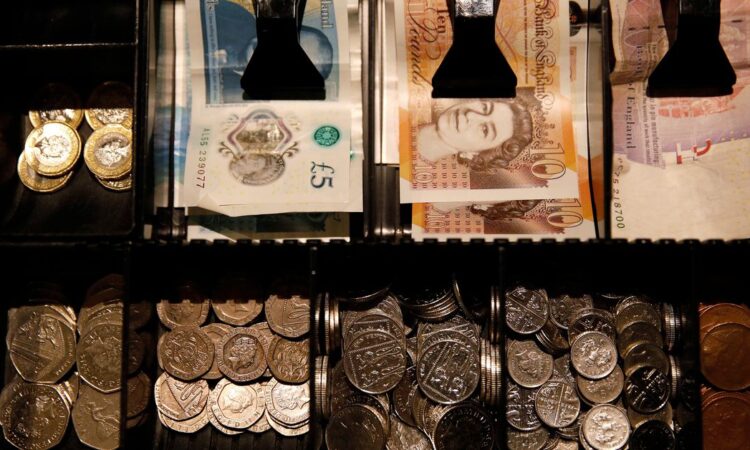
Nov 25 (Reuters) – Sterling was slightly lower on Friday but still set for its third consecutive weekly gain against a weakening U.S. dollar.
Analysts expect the pound to remain vulnerable as central banks, including the Bank of England (BoE), will tighten their monetary policy even into a recession, which is expected to be deeper in Britain than in the U.S.
Expectations for rate hikes, which usually boost a currency’s value, might harm the pound by dampening the country’s economic outlook.
“In view of major economic and inflation risks, GBP yields cannot be high enough to prevent particular risk premiums,” said Ulrich Leuchtmann, head of forex research at Commerzbank.
Britain’s Office for National Statistics on Friday revised producer price inflation figures, meaning factory gate inflation this year has been higher than previously thought.
The dollar was headed for a weekly loss as the prospect of the Federal Reserve slowing monetary policy tightening preoccupied investors.
At 0958 GMT, the pound was down 0.3% against the dollar at $1.2076. It hit $1.2153, the highest level since August 12, on Thursday.
Sterling was down 0.1% versus the euro at 86.01 pence. It was set for its third straight weekly rise versus the dollar and the euro.
“We continue to find it difficult to see the current GBP-USD rally as sustainable over the long run given the bleak picture for the UK economy,” Unicredit analysts said in a note.
“The tight budget recently announced by the UK government will likely make it harder for the BoE to deliver tougher monetary policy to address inflation,” they added.
British finance minister Jeremy Hunt announced tax increases and tighter public spending last week.
BoE Deputy Governor Dave Ramsden backed more interest rate hikes on Thursday, but said he would consider cutting rates if the economy and inflation pressures panned out differently from his expectation.
BoE policymaker Catherine Mann said on Thursday that she expected inflation would be at the upper end of the range of forecasts published by the central bank earlier this month.
Wednesday’s news that the Scottish government cannot hold a second referendum on independence next year without approval from the British parliament had little impact on the pound.
Reporting by Stefano Rebaudo; Editing by Mike Harrison
Our Standards: The Thomson Reuters Trust Principles.




